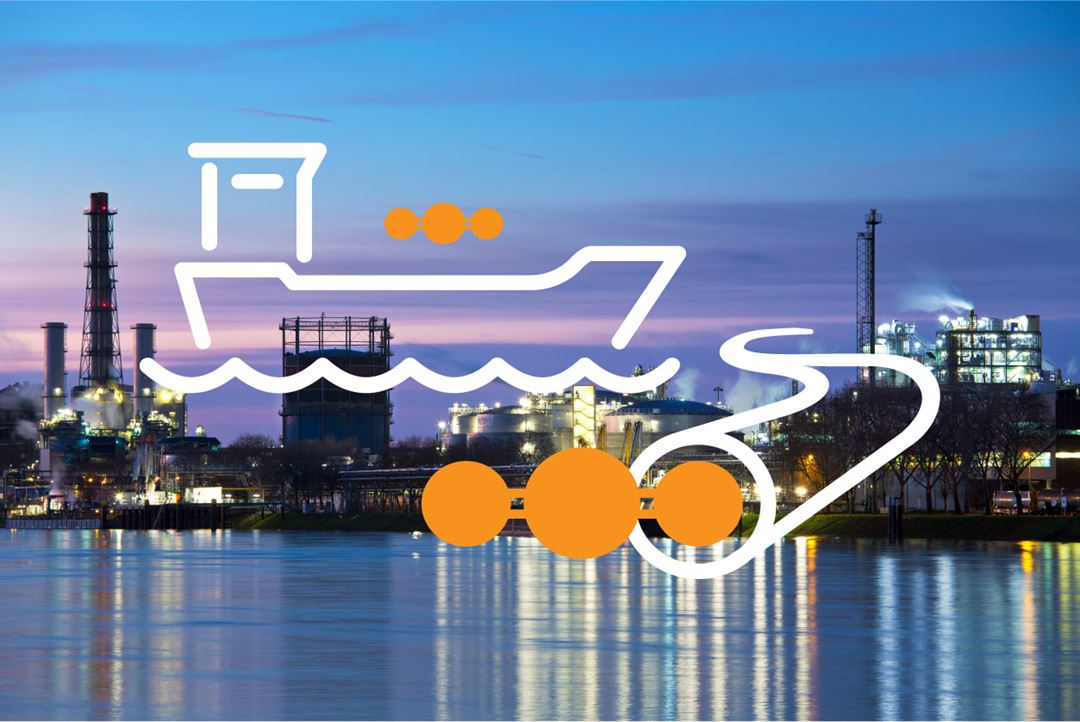A growing need for carbon capture and storage (CCS) requires new CO2 transport solutions, both offshore and onshore. Since CO2 will normally not be captured and stored at the same location, there will be a need to transport large amounts of CO2 in the near future, mainly by pipeline or ship.
Choosing the most beneficial transport method depends on the amount of CO2, the distance between the source and storage sites, and the infrastructure available. The time perspective must also be considered when assessing logistics solutions.
As CO2 frequently needs to be transported in several stages, from source to reservoir or end user, a combination of transport methods is often appropriate. The pressure and temperature conditions are important, as well as the amount of impurities allowed in the CO2 specification.
SINTEF examines the entire logistics chain, from pre-treatment (such as pressurisation or cooling), intermediate storage, various modes of transport (such as ships, pipes, railways and road transport), to injection or use. We also investigate opportunities for direct offshore offloading, which means that ships can deliver CO2 directly to the storage facility for injection.
We work in these areas:
- Accurate measurements of CO2-rich mixtures, including phase equilibria
- CO2 preconditioning
- Coupling between thermodynamics and fluid dynamics (robust, accurate and efficient methods)
- Modelling of running ductile fractures in CO2 pipelines
- Heat transfer through pipes or wells
- Dispersion of CO2 in the terrain
- Ship transportation
- Simulation of dynamic flow, depressurization and pressure-wave propagation in pipes or wells
- Cost estimation of the entire logistics chain
- Offshore unloading
- Onboard CO2 capture
Typical assignments for us:
- Assessment of pipeline designs with respect to running ductile fracture
- Evaluation of flow scenarios for pipes or wells
- Including phase transitions, fluid hammering or leakages
- Measurement and calculation of CO2 properties and -flow
- Measurement and calculation of heat transfer and temperatures
- Evaluating different transport scenarios to find the most optimal transport method
- Assessing which purification methods must be implemented to get the right CO2 quality
- Evaluating the material selection
- Estimating costs for both ship and pipe transportation
- Exploring logistics solutions for multiple stakeholders to find out how collaboration can make logistics both more robust and cost-effective
We do this for:
- Industry players
- Authorities
- Stakeholders
- Clusters
- The EU
- CLIMIT
Laboratorier
Depressurization Facility (DEPRESS)
Take a tour of our state-of-the-art Eccsel Depressurization facility with Chief Scientist with Svend Tollak Munkejord, and find out why accuracy, safety, and efficiency are fundamental for comprehending CO2 behaviour.
Precision is a necessity for successfully scaling up carbon capture and storage. At NCCS, our commitment to exact and detailed research is vital for the projects like the Norwegian government's Longship initiative, marking a substantial contribution to Norway's journey toward a carbon-neutral future.
ECCSEL ERIC website for DEPRESS
Flow Assurance for Safety Systems Facility (FASafe)
Join us for an exclusive "behind-the-scenes" look at ECCSEL and our Carbon Capture and Storage (CCS) facilities in Trondheim. In this episode, Svend Tollak Munkejord guides us through the FASafe (Flow Assurance Safety) pipeline setup, with a focus on the dynamics downstream of a constriction, especially concerning CO2.
This setup is instrumental for our partners at NCCS in honing their simulation models, while we leverage this data to corroborate our own models concerning ductile fractures in CO2 pipeline designs.
ECCSEL ERIC website for FASafe
Demonstration of Flow Assurance for CO2 Transport Facility (DeFACTO)
Jacob Stang gives a quick tour of the DeFACTO Rig, exploring the CO2 flow in vertical pipes.
In the Norwegian full-scale project, CO2 will be injected into underground storage via a vertical pipe from sea level. However, there's limited knowledge and models for understanding CO2 flow in these conditions. The goal of the rig is to improve these models, filling the knowledge gaps in CO2 flow dynamics. This research is vital for enhancing environmental technologies and managing CO2 emissions more effectively.


